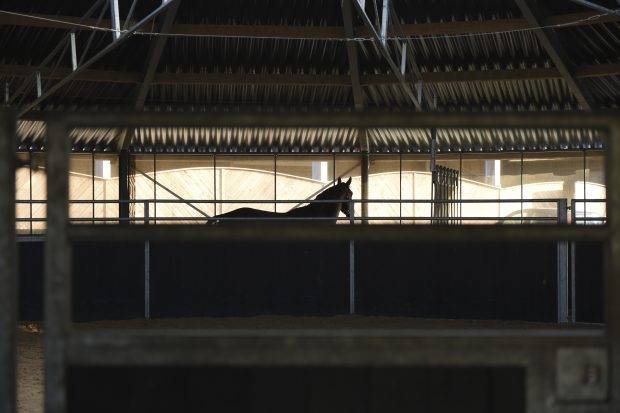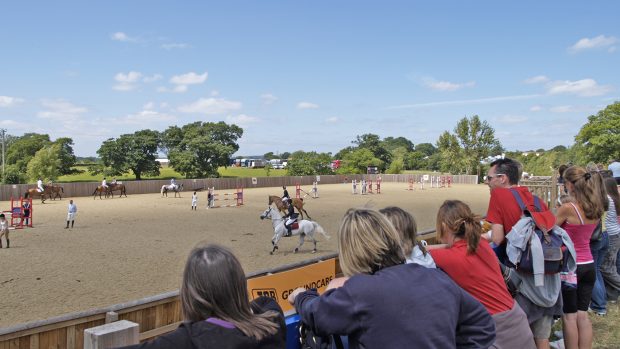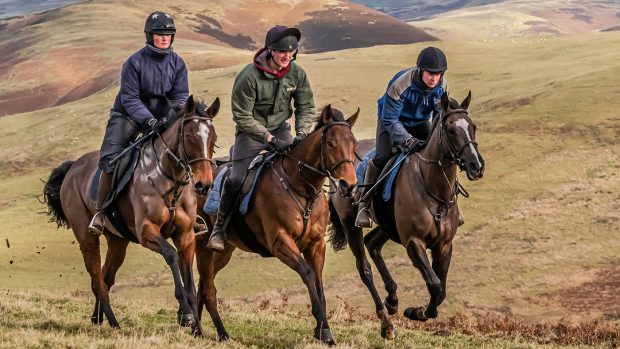Knowing how to ride and lead a horse at the same time is an effective way to exercise two horses at once, provided they’re compatible.
“If they like each other, the job will be a lot easier,” says trainer Guy Robertson, who would ride and lead four when he worked in the worlds of polocrosse and polo.
“Ideally they’ll be paddock mates, or at least able to be tied up together without kicking out.
“You’ll need really good control over the horse you ride — you should be able to handle him with one hand on the reins. Make sure that the other horse leads well from the ground and is happy to be led from the right-hand side.”
Ride and lead: how to get started
Guy starts his by leading them “nose to tail” in a small circle, in each direction. “They tend to be a lot happier like this,” he says.
“The led horse gets used to following with no confrontation, and you can control his head more effectively.”
The led horse will then fall into one of three categories, according to professional polo player and trainer Chris Crawford.
“Hopefully, he’ll lead like a dream, with his head at your knee where it should be,” he says.
“If he pulls ahead and wants to be in front, using a bridle can be helpful.
“Thread a rope from the far-side bit ring through the one nearest to you for more control.
“The worst-case scenario is a horse that constantly drags behind and doesn’t want to be led,” Chris adds.
“A training halter can be useful here for some in-hand work from the ground.
“Ask him to move forwards with even tension on the headcollar, releasing the pressure immediately to reward him when he takes a step.”
Top tips for ride and lead
Chris recommends practising in an enclosed area before venturing out.
“If the led horse is older, with some life experience, he’ll probably be fine in a bridle,” he says.
“A younger horse might be better in a headcollar at first in case he panics at too much pressure on the bit.
“Hold the rope so that the end connected to the horse is laid over the front of your hand, between your index finger and thumb.
“Keep the led horse’s rope in one hand and the ridden horse’s reins in the other,” adds Chris.
“With practice, ride and lead can be a great form of exercise and is probably better for the horse than a horse-walker.”
Road safety
Extra care should be taken when riding and leading on the road. Always keep the led horse on your left, away from the traffic, and use a bridle for more control.
Wear hi-viz or reflective clothing and consider the size of the roads — some may not be wide enough for traffic to pass two horses safely.
You might also be interested in:

How to form a fitness plan for your horse

5 steps to bring your horse back in to work
If your horse is coming back to work after recovering from an injury, what is the best way to proceed?

Subscribe to Horse & Hound magazine today – and enjoy unlimited website access all year round
Horse & Hound magazine, out every Thursday, is packed with all the latest news and reports, as well as interviews, specials, nostalgia, vet and training advice. Find how you can enjoy the magazine delivered to your door every week, plus options to upgrade your subscription to access our online service that brings you breaking news and reports as well as other benefits.




